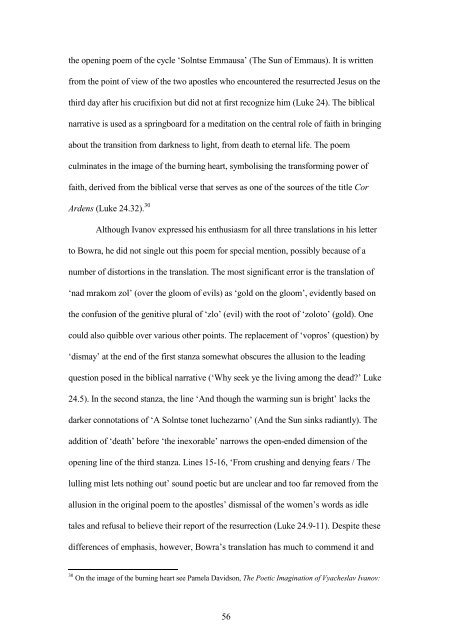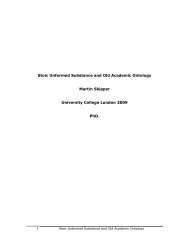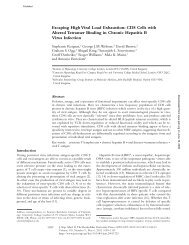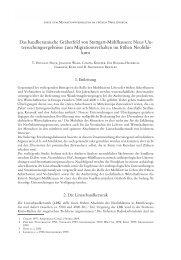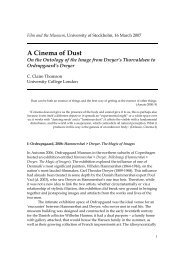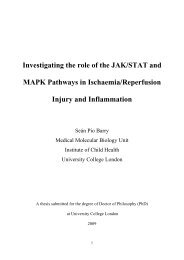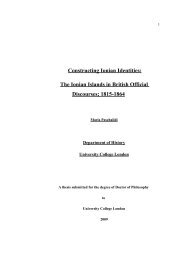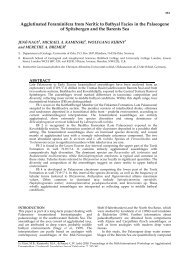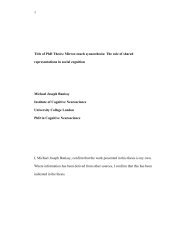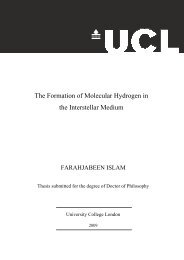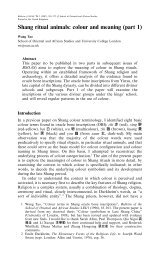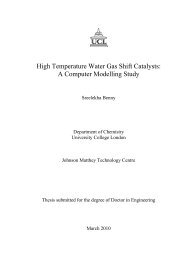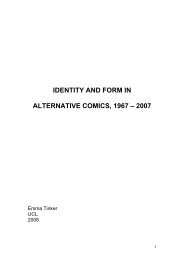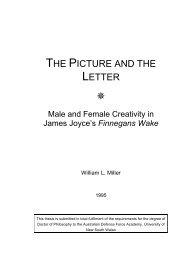Vyacheslav Ivanov and C.M. Bowra: a ... - UCL Discovery
Vyacheslav Ivanov and C.M. Bowra: a ... - UCL Discovery
Vyacheslav Ivanov and C.M. Bowra: a ... - UCL Discovery
You also want an ePaper? Increase the reach of your titles
YUMPU automatically turns print PDFs into web optimized ePapers that Google loves.
the opening poem of the cycle ‘Solntse Emmausa’ (The Sun of Emmaus). It is written<br />
from the point of view of the two apostles who encountered the resurrected Jesus on the<br />
third day after his crucifixion but did not at first recognize him (Luke 24). The biblical<br />
narrative is used as a springboard for a meditation on the central role of faith in bringing<br />
about the transition from darkness to light, from death to eternal life. The poem<br />
culminates in the image of the burning heart, symbolising the transforming power of<br />
faith, derived from the biblical verse that serves as one of the sources of the title Cor<br />
Ardens (Luke 24.32). 30<br />
Although <strong>Ivanov</strong> expressed his enthusiasm for all three translations in his letter<br />
to <strong>Bowra</strong>, he did not single out this poem for special mention, possibly because of a<br />
number of distortions in the translation. The most significant error is the translation of<br />
‘nad mrakom zol’ (over the gloom of evils) as ‘gold on the gloom’, evidently based on<br />
the confusion of the genitive plural of ‘zlo’ (evil) with the root of ‘zoloto’ (gold). One<br />
could also quibble over various other points. The replacement of ‘vopros’ (question) by<br />
‘dismay’ at the end of the first stanza somewhat obscures the allusion to the leading<br />
question posed in the biblical narrative (‘Why seek ye the living among the dead?’ Luke<br />
24.5). In the second stanza, the line ‘And though the warming sun is bright’ lacks the<br />
darker connotations of ‘A Solntse tonet luchezarno’ (And the Sun sinks radiantly). The<br />
addition of ‘death’ before ‘the inexorable’ narrows the open-ended dimension of the<br />
opening line of the third stanza. Lines 15-16, ‘From crushing <strong>and</strong> denying fears / The<br />
lulling mist lets nothing out’ sound poetic but are unclear <strong>and</strong> too far removed from the<br />
allusion in the original poem to the apostles’ dismissal of the women’s words as idle<br />
tales <strong>and</strong> refusal to believe their report of the resurrection (Luke 24.9-11). Despite these<br />
differences of emphasis, however, <strong>Bowra</strong>’s translation has much to commend it <strong>and</strong><br />
30 On the image of the burning heart see Pamela Davidson, The Poetic Imagination of <strong>Vyacheslav</strong> <strong>Ivanov</strong>:<br />
56


